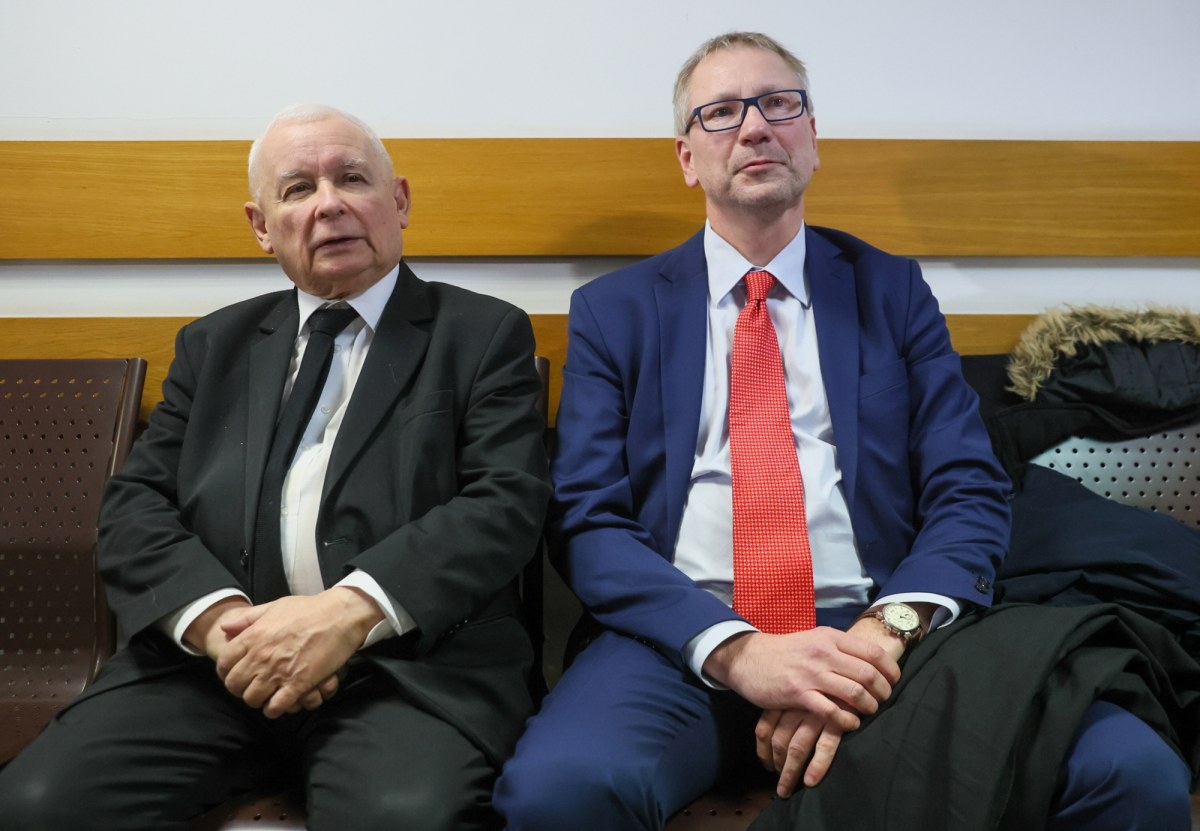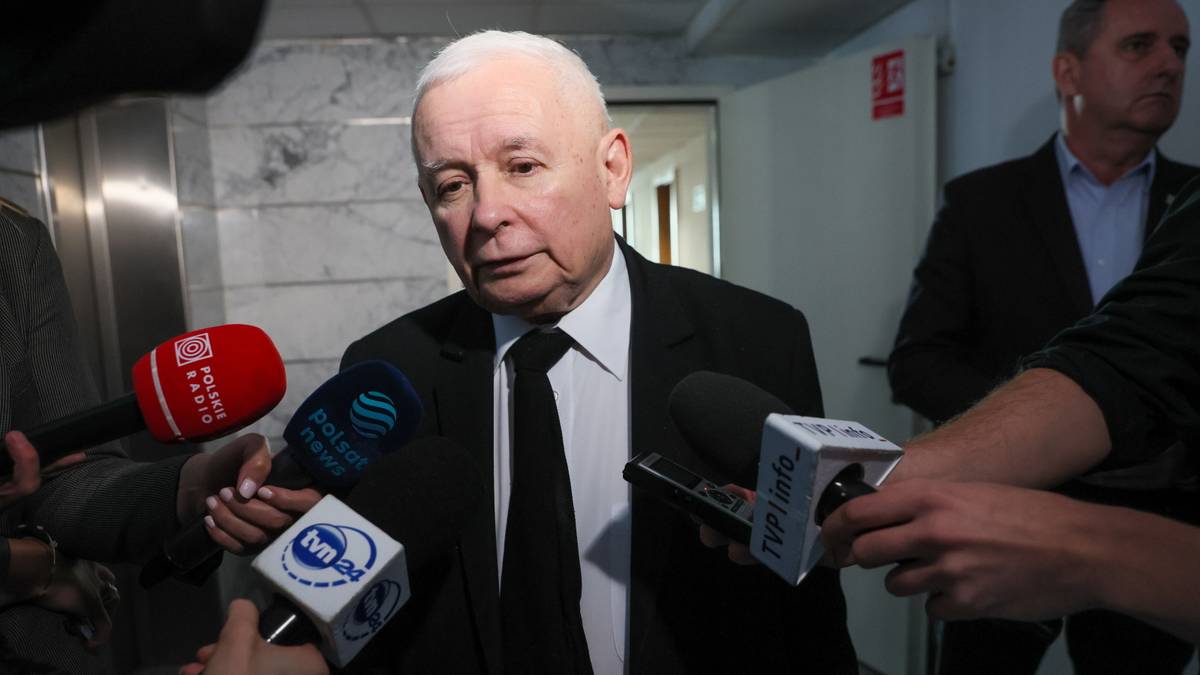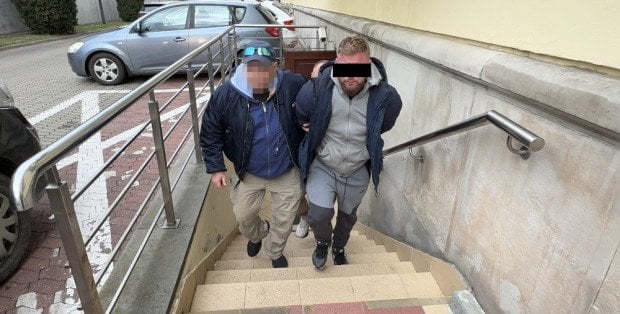Piotr Ciompa and I are talking about Fr Jerzy Popieluszka, his commitment to people working and what Catholic social discipline says about labour matters.
(Interview is simply a edited and completed version of the podcast Are you aware? p. Pcare, pastoral care of workers and advice of employees).

Peter Ciompa
A manager with many years of experience in work for various companies from both the private and public sectors. He studied past at the University of Warsaw. He besides holds an MBA degree from Calgary University. During his studies, he actively acted in the Independent Student Association. In the past, he worked, among others, as an analyst at the National safety Office. From March 2023 to January 2024, he sat in the chair of the president of the Polish safety Printing Works. In the past, he was besides Vice-President of the Polish Press Agency. Between 2006 and 2019, an associate of the Institute of civilian Affairs active in the Centre for the Support of Workers' Councils and the Citizens' run decide.
Rafał Górski: In 2024 we celebrate the 40th anniversary of the abduction and martyrdom of Blessed Jerzy Popieluszko. Let me start by quoting from Fr Jerzy Popiełuszko: “[Work] is to service man... Hence, man cannot be a slave to work, and man cannot see only economical values. In personal, social or professional life, 1 cannot build on materialism alone.... substance comes out of the workshop refined, and man becomes worse. Why is work frequently not a origin that enriches man? (...) Why is man frequently only a robot who has a work to carry out plans, and preferably if he does so with his mouth closed?’What did Father George gotta do with the labour business?
Peter Ciompa: I could be provocative to say that nothing, due to the fact that if he dealt with labour and social matters, it was a consequence of his religion and his commitment to the Church. It was in this field that his religion manifested itself in a very spectacular, expressive way.
Father George's character is easy to instrumentalize. In his heritage, supporters of various political groups can find something for themselves – both nationalists and organization members Together. It was specified a remarkable character who broke any patterns.
For the sake of order, I would like to point out that in teaching the Church, the Catholic social science, which we will talk about here in its context, is not the most crucial – above the precedence are articles of religion and moral teaching.
But that doesn't mean that people at work, especially those who weren't managers, had a third-rate meaning for them.
In 2014, your diary “Rzeczpospolita” appeared text about the forgotten legacy of Father George. You wrote in it that “the Church signed an act of surrender without 1 conflict on the substance of labor.” delight explain these words.
The church after 1989 gave up its commitment to work, without any outside pressure. While there is inactive a dispute over what household life should look like, what laws should lay down the rights and obligations of spouses, there has been no conflict with any real or imaginary opponents on work.
The church just abruptly lost interest in the subject.
I did not talk to the bishops who made that decision. I find it hard to tell what their motivations were, but the consequence is embarrassing for the Church.
The civilian Affairs Institute has been moving since 2006 campaign to strengthen staff councils. This 18-year conflict has begun due to you, Peter, due to the fact that you are the 1 who came to the Institute. What is the connection between the pastoral ministry of workers and the council of employees?
First of all, it is the good of the individual that is understood for them as developing a sense of self-respect and mission towards others. Unfortunately, despite 1 goal, they did not function in parallel. At 1 point, I was hoping that I could convince individual in the Church that, after the abolition of the pastoral ministry of workers, it was the advice of workers that was the perfect institution for Catholics to take up this “standard”.
Of course, not only Catholics, for people of another religions work, unbelievers, religiously indifferent.
But I believe that Catholics have an work to take an interest in specified an institution, since they mention to Catholic social science.
In Catholic social science, we will find many justifications for institutions specified as the board of employees or the labour self-government. The current Vice-President of the Polish Episcopal Conference Archbishop of Wroclaw Fr Józef Kupiny wrote, as a priest, very profoundly about the establishment as a human community. Unfortunately, I do not yet see the translation of this content into the real functioning of the Church.
This is where I'm going back to history. Everyone knows where the first trade unions were formed, while fewer people know where the world's first company council, the institution allowing workers to co-manage.
Its creator was Leon Harmel, a French entrepreneur who established it in his factories in the second half of the 19th century. He was not naive, he did not imagine that the power - given workers would immediately make good usage of her. The plant council was besides a form of education, educating them to exercise power.
This all happened just after the release of the encyclical of Pope Leon XIII "Rerum novarum". Then Catholic social discipline was not yet developed. Leon Harmel, who was an ardent Catholic, wondered how to live as a rich man who was harder to enter the Kingdom than a camel to walk through a needle's ear. And he came to the conclusion that he had an work to appreciate the workers for whom God entrusted him with work in the process of maturing humanity. This was expected to be the company board, not the union.
Because there's a difference between worker self-government and the union. It's best if they don't get in the way.
One institution and the another are needed by workers, but it is improbable to be possible to connect them without harming their mission.
What is the difference?
The trade union fights for the peculiar interests of workers, while the staff council, the labour council or the works council should first care for the common good, the company as a community of all employees. And they are looking for the best solutions, but not just for themselves, but besides for the recipients, for suppliers. present it is called corporate social work and is abused and instrumentally treated by large corporations who want to make usage of it for their image.
I can besides imagine that a liable worker council can get into a dispute with the trade union if its claims are unbearable for the company. However, without a trade union, the staff council will not be able to carry out its appointment, as workers will exert force to anticipate the board to take care of representing their narrow interests. delight note that I do not criticize unions in this.
Fr Jerzy said, “I will be among my workers as long as I can.” Can you explain why the workers were so crucial to him?
As a believer, I can say it's a secret. I am associated with the parish where priest Jerzy Popieluszko was a vicar. Those who remembered him, whose stories I met, did not think he would be a individual of this format. We simply believe that God has appointed a prophet. There was nothing to tell about his large role. I don't know how it happened.
What can be the evidence of his engagement in the labour business? 1 might say that the superiors sent him to nurses, ironsmiths, and he simply did his pastoral craft well. This was not due to the fact that he was active in this above the pastoral standard.
We know that Fr Jerzy Popieluszko planned to establish the University of Labour. This is an thought from the Polish Socialist organization program, in this best tradition before planet War II, but it was besides his idea, which he did not realise.
We know that in the church of St. Stanislaw Kostka in Warsaw he organized open performances, meetings which were intended to circumvent censorship. There were besides fragments of various statements by Polish socialists, utopiats from the 19th century.
All this shows that his social commitment was "autonomic", not asked.
Who benefits, and who loses, that the Church has withdrawn from the work of its faithful?
Everyone loses, including business.
Business loses all time work standards get worse.
Today in Poland we see Catholic ethics wilting, and nothing fresh to her place appears. Attempts to build secular ethics are not successful and this results in regressions in terms of certain standards, besides in the workplace. I think that employers do not see that 1 of the reasons is to retreat the Church from this area of human life, that the Church does not have much to tell workers about how to live in the workplace.
If you became an advisor to the Polish Episcopal Conference, what would you advise this body today?
Above all, I would advise not to disturb, and God will appoint prophets.
Priest Primate Wyszyński had just conducted specified a policy, and the Lord God had already raised those who raised this banner advanced and led others behind them. This was in August 1980.
Referring to the character of the Primate Wyszyński, I will grant a digression. I had the chance to visit Archbishop Stanisław Budzik, the Lublin metropolitan. In the admission room, there is simply a image of Stanisław Lentz from the 1905 Revolution, presenting the negotiations of a delegation of workers with an employer, who powerfully refuses any concessions. You can see that the oldest of the workers is already resigned, the middle-aged 1 explains something, and the youngest has his fists clenched. The painting was hung there by Bishop Stefan Wyszyński, inactive as bishop of Lublin. The canvas makes an incredible impression, especially in the surroundings of dignified portraits of Lublin bishops. The hanging of this image reflects 1 of the dimensions of the Primate spirit. And I think, Father George Popiełuszko.
We spoke to the Archbishop on this subject and he showed me a very interesting document. It was an instruction for Central Committee speakers from the second half of the 1950s, as to talk in meetings with various PZPR activists about Wyszynski's primacy. It was clear that the Primate considered the communists to be a temporary raid, the Mickiewicz's "sleazy lava" on Polish society and that the fall of communism would begin with our country. According to him, capitalism will not survive, and it will come from Poland an impulse to improvement it. So the communists summarized his views. It struck me that the instruction was written with a sincere language, no apparatusist euphemisms there.
What crucial question has no 1 always asked you about what we are talking about, and what is the answer to that question?
I find it hard to answer that question. I am mostly disappointed that erstwhile I tried to interest the Church's hierarchs in work subjects, I did not find a response. And I don't want to justice due to the fact that I realize that individual can look at the things that I come with as secondary, and that's besides the fact that there are more crucial topics. But who knows, if the Church had proposed a solution in this area of human life, there might have been solutions in everyone else.
In fact, there is no discussion in the Church about the mission of the Church, Catholics in the workplace.
We are mostly no different from those who refuse to admit their faith. Encyclicals of John Paul II "Labor Exercens" or "Solicitudo Rei Socialists" in the current generation of Catholics are dead. They are waiting for a prophet to revive them.
Thank you for talking to me.















